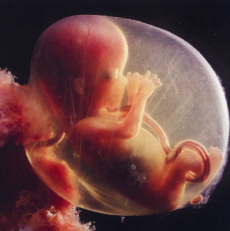
Email: lienaaltai@icloud.com
Total Article : 47
About Me:Sixth form student with an interest in a wide variety of topics such as languages, history, philosophy, politics and literature

However, religion can be used from a different angle as a form of moral guidance in regard to abortion. In the 1960s, Joseph Fletcher devised the teleological argument of Situation Ethics (SE). This argument is a liberal Christian approach based on agape love. Fletcher states that an action is right if it produces the most amount of love for the most amount of people as “love is the only instructive good”. He emphasises that actions should be taken depending on the situation. Therefore, a liberal Christian can use this as guidance in the matter of abortion. For example, abortion may be the most loving action to take for one situation however, not for another in the same position. In order to know whether an action is the most loving in terms of abortion, it is dependent on the rights of the mother, the foetus and their potential quality of life. As a result, this strays away from the typical orthodox “textbook morality” and can correlate well with modern philosophy. This can show that the SoL may not always be applicable in every situation. SE is good moral guidance as it is more flexible by not having set rules and it correlates with Utilitarianism and the mothers rights.
SE has faced some criticisms. William Barclay argues that there will always be a dispute about what the most loving thing to do is. This is reflected in the issue of abortion as different people have a different form of guidance and approach to abortion in which they believe is the most loving. Furthermore, Barclay highlights the fact that not every human is sophisticated enough to use situation ethics as their guidance. This is because the idea of actions being based on agape love can be exploited. For example, someone can repetitively engage in casual sex, resulting in multiple pregnancies and exploit their right to have an abortion and be able to argue that it is the most loving thing to do.
However, Christianity is not the only religion that offers moral guidance. Islam views abortion in a different light as it’s not regarded as a mortal sin. Instead, there are circumstances where Islam permits it. For example, throughout all schools of Islam, it is accepted that an abortion can take place after 120 days but only if the mother’s life is in danger. Aside from this, views on when abortion in general is acceptable slightly differs within the schools. This is because of the idea on ensoulment and when it occurs during the pregnancy. Ensoulment in Islam is where the foetus is given a soul, or a “ruh”, which makes the foetus sacred. Some schools believe that this happens on the 40th day whereas others believe that the foetus gains a ruh on the 120th day. Islam’s view on abortion gives us a further insight into the development of the foetus and the rights of the mother which allows us to acknowledge other aspects of the process and to take them into consideration. On the other hand, the issue with abortion is that it’s the killing of life. After 120 days, abortion in Islam is rarely permitted because that is when the foetus gains a ruh. However, in religion it is believed that a soul never dies as it is the soul that transcends to the afterlife. Therefore, the concept of ensoulment may be irrelevant in the matters of abortion.

0 Comment:
Be the first one to comment on this article.